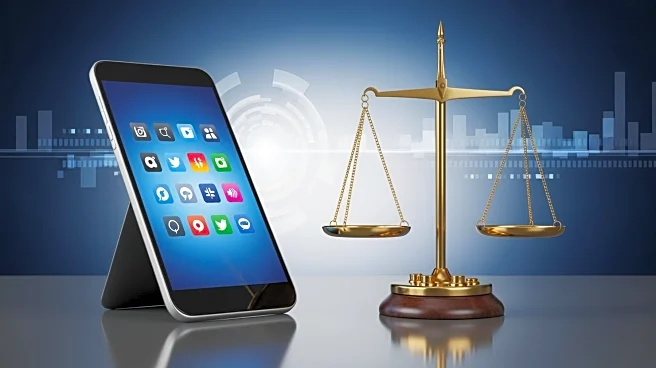What's Happening?
Major Israeli broadcasters, including YES, HOT, Keshet, Charlton, and Sport Channel, have filed a lawsuit against TikTok Israel and its global parent company, seeking damages for alleged copyright infringement. The lawsuit, filed in Tel Aviv District
Court, accuses TikTok of enabling widespread unauthorized use of copyrighted material, including sports content owned by the plaintiffs. The plaintiffs claim TikTok's platform facilitates large-scale copyright infringement and that the company fails to effectively monitor or prevent such violations. They argue that TikTok profits from infringing content and has the technological capacity to implement measures to prevent these violations but has not done so.
Why It's Important?
This lawsuit highlights ongoing concerns about digital platforms and their role in copyright infringement. If successful, the case could set a precedent for how social media companies are held accountable for user-generated content that violates copyright laws. The outcome may impact TikTok's operations and policies, potentially leading to stricter content monitoring and removal processes. It also underscores the tension between content creators and digital platforms, emphasizing the need for effective partnerships to protect intellectual property rights.
What's Next?
The plaintiffs are seeking financial damages and a permanent injunction to remove infringing content from TikTok. They also want a court order requiring TikTok to prevent future uploads of protected material. TikTok has not yet responded to the lawsuit, and the case will likely proceed through the legal system, with potential implications for TikTok's business practices and content policies.
Beyond the Headlines
The lawsuit raises broader questions about the ethical responsibilities of digital platforms in managing user-generated content. It challenges TikTok's approach to content moderation and highlights the need for robust systems to protect intellectual property rights in the digital age. The case may influence future legal standards and industry practices regarding copyright enforcement on social media platforms.















